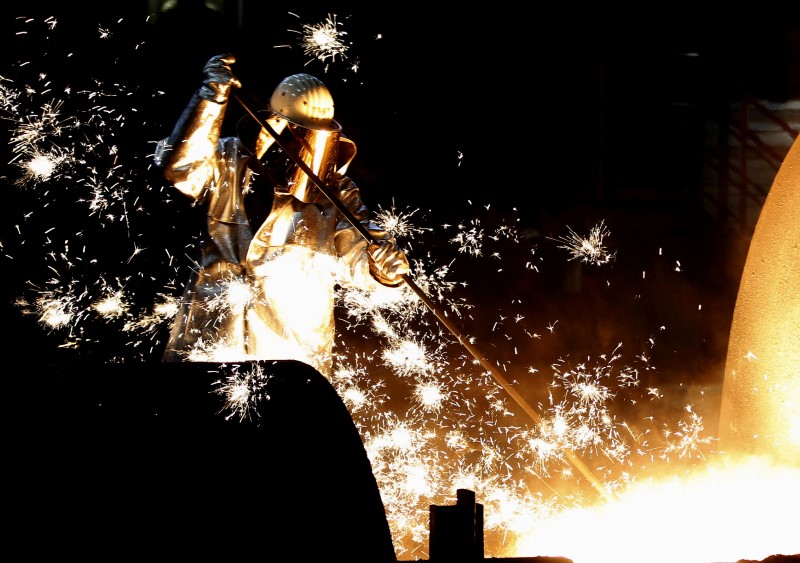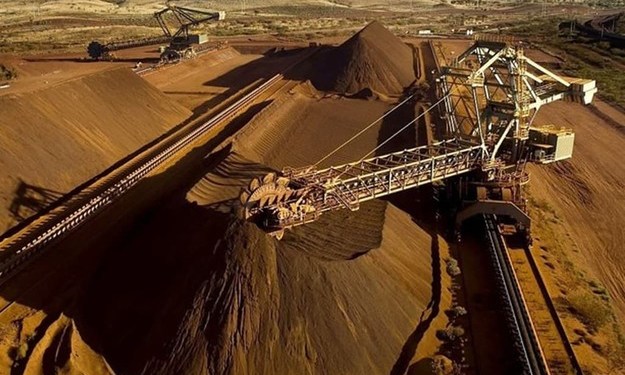 © Reuters. A German steelmaker ThyssenKrupp worker controls a blast furnace in Duisburg
© Reuters. A German steelmaker ThyssenKrupp worker controls a blast furnace in DuisburgFRANKFURT (Reuters) – The German economy is powering into the end of the year thanks to strong industrial activity and firms are increasingly struggling to find workers to satisfy orders, the country’s central bank said on Monday.
The upbeat assessment showed Europe’s largest economy had so far shrugged off the political impasse that followed inconclusive elections in September and looked set to continue on Monday as Chancellor Angela Merkel’s efforts to form a coalition government collapsed.
So far, Germany’s influential central bank said a strong influx of new orders suggested manufacturing was driving economic growth.
“Buoyed by the boom in industrial activity, the German economy is likely to remain on a strongly expansionary path in the final quarter of 2017, too,” the Bundesbank said in its monthly report.
If anything, the main hurdle to producing more was a shortage of labor, particularly in the construction and manufacturing sectors.
“A growing shortage of skilled labor could place greater constraints on continued strong output growth in future,” the Bundesbank said.
“Ultimately, the extremely positive labor market environment and the fact that income prospects remain upbeat will ensure that private consumption stimulates domestic activity,” it added.
Fusion Media or anyone involved with Fusion Media will not accept any liability for loss or damage as a result of reliance on the information including data, quotes, charts and buy/sell signals contained within this website. Please be fully informed regarding the risks and costs associated with trading the financial markets, it is one of the riskiest investment forms possible.
Source: Investing.com




























